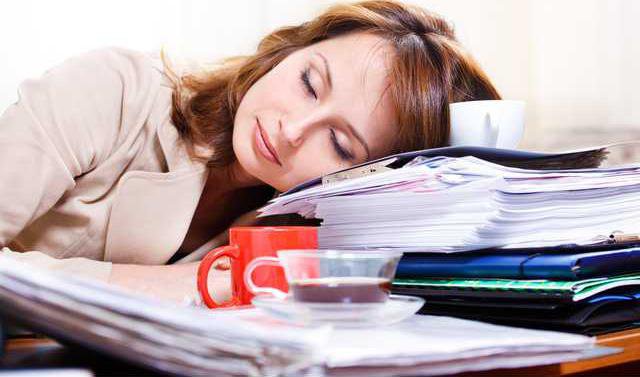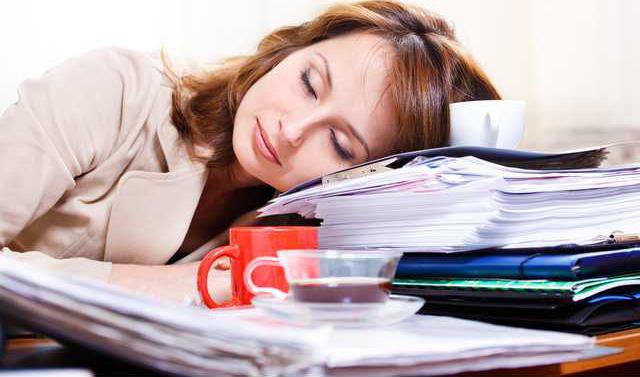If you find yourself feeling groggy in the morning, its time to change your sleeping habits. Recent studies show the things you do before bed could be costing you precious sleep.
Adults ages 18 and up need at least seven hours of sleep, according to the National Sleep Foundation. If you arent getting enough shut-eye, change these six habits so you can have a good nights rest:
1. Watching television in bed
Tip: use your bed for sleep and intimacy only
One of the biggest mistakes people make when it comes to their sleep schedule is using their bed for too many things, Gary Zammit, Ph.D., said. Some people use their bed as an office or entertainment room until its time to fall asleep; then they expect their body to be ready for sleep at the flip of their light switch. But the brain doesnt work that way, Zammit points out.
If you cant resist turning on the television or reaching for your phone while in bed, remove the temptation. Set up the television in your living room, keep your laptop on a desk or bookshelf and use a real alarm clock instead of relying on your phone. Use your bed only for sleep and intimacy so your brain doesn't confuse bedtime with answering emails and social media scrolling.
2. Grabbing a late afternoon pick-me-up
Tip: avoid caffeine after lunch
Sometimes your afternoon pick-me-up could be interfering with your sleep. Caffeine stays in your body for three to five hours, and could stay as long as 12. Grab a caffeinated soda or a coffee a little earlier in the day, but try to avoid it after lunch. A good nights sleep could should give you enough energy to get through the afternoon without a caffeine break.
3. Sleeping in on the weekend
Tip: set your alarms every day
As annoying as it might be to wake up early on your days off, it will pay off when Monday morning rolls around. Consistency is the key to a good nights sleep, according to Travis Bradberry, Ph.D.
Have you ever noticed you sometimes wake up right before your alarm rings? Thats because your body has prepared itself by increasing your hormone levels and blood pressure, Bradberry said. A consistent sleep schedule helps your body know when to prepare for waking up, but an inconsistent schedule confuses that natural rhythm.
4. Thinking about tomorrows to-do list
Tip: set a routine
Anxiety and stress are common culprits that keep you from falling asleep. Help your body wind down by setting a routine. Try reading a book or listening to relaxing music each night before tucking in.
5. Feeling uncomfortable
Tip: use a night-light
It goes without saying that you need to be comfortable to fall asleep. To do just that, find a mattress you like, wear something soft, set your thermostat to a comfortable temperature and turn on a night-light or music if needed.
6. Waking up in the middle of the night
Tip: talk to a therapist
If youre having consistent trouble falling and staying asleep, talk to your doctor or therapist for help. Sleep disorders can be caused by anxiety, depression and big life changes. A therapist can help you determine the root of the problem and offer solutions so you can get a good nights rest.
Find what works best for you as you try out different bedtime routines and sleeping habits. Get the amount of sleep you need so you can feel well-rested and conquer the day ahead of you.
Adults ages 18 and up need at least seven hours of sleep, according to the National Sleep Foundation. If you arent getting enough shut-eye, change these six habits so you can have a good nights rest:
1. Watching television in bed
Tip: use your bed for sleep and intimacy only
One of the biggest mistakes people make when it comes to their sleep schedule is using their bed for too many things, Gary Zammit, Ph.D., said. Some people use their bed as an office or entertainment room until its time to fall asleep; then they expect their body to be ready for sleep at the flip of their light switch. But the brain doesnt work that way, Zammit points out.
If you cant resist turning on the television or reaching for your phone while in bed, remove the temptation. Set up the television in your living room, keep your laptop on a desk or bookshelf and use a real alarm clock instead of relying on your phone. Use your bed only for sleep and intimacy so your brain doesn't confuse bedtime with answering emails and social media scrolling.
2. Grabbing a late afternoon pick-me-up
Tip: avoid caffeine after lunch
Sometimes your afternoon pick-me-up could be interfering with your sleep. Caffeine stays in your body for three to five hours, and could stay as long as 12. Grab a caffeinated soda or a coffee a little earlier in the day, but try to avoid it after lunch. A good nights sleep could should give you enough energy to get through the afternoon without a caffeine break.
3. Sleeping in on the weekend
Tip: set your alarms every day
As annoying as it might be to wake up early on your days off, it will pay off when Monday morning rolls around. Consistency is the key to a good nights sleep, according to Travis Bradberry, Ph.D.
Have you ever noticed you sometimes wake up right before your alarm rings? Thats because your body has prepared itself by increasing your hormone levels and blood pressure, Bradberry said. A consistent sleep schedule helps your body know when to prepare for waking up, but an inconsistent schedule confuses that natural rhythm.
4. Thinking about tomorrows to-do list
Tip: set a routine
Anxiety and stress are common culprits that keep you from falling asleep. Help your body wind down by setting a routine. Try reading a book or listening to relaxing music each night before tucking in.
5. Feeling uncomfortable
Tip: use a night-light
It goes without saying that you need to be comfortable to fall asleep. To do just that, find a mattress you like, wear something soft, set your thermostat to a comfortable temperature and turn on a night-light or music if needed.
6. Waking up in the middle of the night
Tip: talk to a therapist
If youre having consistent trouble falling and staying asleep, talk to your doctor or therapist for help. Sleep disorders can be caused by anxiety, depression and big life changes. A therapist can help you determine the root of the problem and offer solutions so you can get a good nights rest.
Find what works best for you as you try out different bedtime routines and sleeping habits. Get the amount of sleep you need so you can feel well-rested and conquer the day ahead of you.








